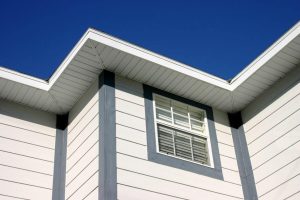Double pane windows offer improved insulation over single pane, while triple pane windows provide even greater energy efficiency. Choosing between them balances cost against thermal performance.
Selecting the right window type is essential for both home comfort and energy savings. Double pane windows consist of two sheets of glass with air or gas, like argon, sealed between them, providing a good barrier against temperature change. Triple pane windows add another layer of glass and insulation, which further reduces heat transfer and can greatly diminish outside noise.
This makes triple pane windows particularly effective in extreme climates and noisy areas. While triple pane windows tend to be more expensive initially, they can lead to significant savings in heating and cooling costs over time. Consumers weighing their options will consider the immediate cost against long-term benefits in energy conservation and utility bill reduction.
Double Pane Windows
When exploring options to upgrade the energy efficiency and comfort of a home, choosing the right type of window becomes crucial. Double pane windows stand out as a popular choice among homeowners. Let’s delve into what makes these windows a preferred option, their construction, benefits, and potential drawbacks.
Definition And Construction Of Double Pane Windows
At its core, a double pane window, also known as an insulating glass unit (IGU), features two pieces of glass separated by a space to trap air or inert gas. This design provides a substantial barrier against energy transfer, enhancing thermal performance. Here’s how these windows are typically constructed:
- Glass Layers: Two panels of glass spaced apart for insulation.
- Spacer: A material separating the glass panels, often filled with desiccant to absorb moisture.
- Sealant: Airtight and watertight bonds hold the unit together, preventing condensation.
- Gas Fill: Argon or krypton gas may replace air between panes for better insulation.
Benefits Of Using Double Pane Windows
Double pane windows bring a plethora of advantages that resonate with energy-conscious homeowners. Key benefits include:
| Benefit | Description |
|---|---|
| Energy Efficiency | Reduces heat transfer, leading to lower heating and cooling costs. |
| Noise Insulation | Offers a quieter interior by damping external noise. |
| UV Protection | Coatings on the glass can block harmful UV rays, protecting interiors. |
| Increased Comfort | Maintains consistent indoor temperatures for enhanced comfort. |
Beyond the table, these windows also contribute to increased property value and can lead to potential savings in energy costs over time. Their construction and features suit a variety of climates, making them a versatile choice.
Drawbacks Of Double Pane Windows
While double pane windows offer significant benefits, certain drawbacks are worth noting:
- Limited insulation compared to triple pane alternatives, which could be a factor in extremely cold environments.
- If the seal fails, moisture between the panes can lead to condensation and obscured views.
- Typically heavier than single pane windows, potentially requiring stronger support or hardware.
- Upfront costs may be higher than single pane windows, though with long-term savings on energy bills.
In summary, double pane windows provide a substantial upgrade from single pane options, but they may not always be the perfect fit for every situation. Homeowners must consider the balance between initial investment and long-term benefits, specific climate requirements, and potential moisture issues before making a decision.
Triple Pane Windows
Definition and construction of triple pane windows
Definition And Construction Of Triple Pane Windows
Triple pane windows, as the name suggests, are windows with three layers of glass separated by two air or gas-filled spaces. These windows are designed to significantly improve a home’s insulation compared to their double pane counterparts.
- Layers: They consist of three glass panes, each potentially treated with a low-emissivity (Low-E) coating that reflects heat while allowing light to pass through.
- Spacers: Positioned between the panes, spacers contain desiccants to absorb moisture and maintain a dry airspace.
- Gases: The spaces between the panes are often filled with inert gases like argon or krypton, which are denser than air, providing enhanced insulation.
- Frame: These units are enclosed in durable frames made from materials such as vinyl, fiberglass, wood, or composite, adding to the window’s overall thermal efficiency.
Advantages of using triple pane windows
Advantages Of Using Triple Pane Windows
Opting for triple pane windows comes with an array of benefits. The foremost advantages include:
| Advantage | Description |
|---|---|
| Energy Efficiency | Improved insulation properties lead to reduced heat loss and gain, contributing to lower energy bills. |
| Noise Reduction | With multiple layers of glass and gas fillings, these windows can significantly reduce noise penetration. |
| Increased Comfort | Maintain a consistent indoor temperature year-round, enhancing comfort levels within the home. |
| Enhanced Security | The additional layer of glass makes these windows sturdier and more difficult to break, increasing security. |
| UV Protection | Low-E coatings on glass panes can block harmful UV rays, protecting furniture and flooring from fading. |
Disadvantages of triple pane windows
Disadvantages Of Triple Pane Windows
Despite their impressive benefits, triple pane windows also come with certain disadvantages:
- Higher Initial Cost: They present a higher upfront investment compared to double pane windows.
- Increase in Weight: With an additional glass layer, these windows are heavier, possibly necessitating structural adjustments during installation.
- Diminished Returns: In regions with milder climates, the energy savings may not justify the cost difference from double pane windows.
- Condensation Risks: If not properly manufactured or installed, condensation can occur between the panes, leading to potential view obstruction and window damage.
Frequently Asked Questions On Double Pane Vs Triple Pane Windows
Are Triple Pane Windows Really Better Than Double Pane?
Yes, triple pane windows offer better insulation than double pane, leading to improved energy efficiency and noise reduction in homes.
What Are The Disadvantages Of Triple Pane Windows?
Triple pane windows can be costly and heavier than double pane, potentially requiring stronger support. Maintenance or repairs can be more complex due to the additional glass layer.
How Much More Expensive Are Triple Pane Windows Than Double Pane?
Triple pane windows typically cost about 10-15% more than double pane windows, providing better insulation and energy efficiency.
Is It Worth Getting Triple-glazed Windows?
Triple-glazed windows are worth considering for enhanced insulation, noise reduction, and energy savings, especially in colder climates. They offer long-term cost benefits and improved home comfort.
Conclusion
Choosing the right windows for your home is crucial. Double pane windows offer great energy efficiency and cost savings. Triple pane windows step it up with better insulation and noise reduction. Evaluate your climate, budget, and energy goals. Make an informed decision that suits your specific needs.
Your home deserves the best.



